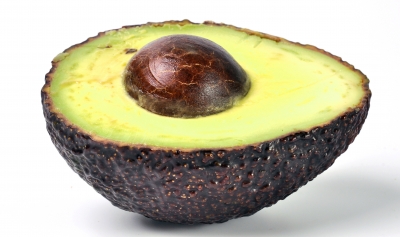Fats are perceived as the “taboo” macronutrient but this is a misconception. While research and education has helped some people understand the health benefits of fats, the misunderstanding persists.
Benefits of Healthy Fats:
- Help maintain proper hormone function
- Minimal effects on insulin release
- Allow for absorption of fat-soluble vitamins (A, D, E, K)
- Support cell membrane integrity
- Provide a steady form of energy
Types of Fats to Include:
- Avocado
- Minimally processed coconut oil
- Extra virgin olive oil
- All natural nut butters
- Fish or fish oil supplements
- Organic/hormone -free whole eggs
Are all saturated fats bad for you?
Saturated fats clog arteries and cause heart attacks, right? Not all saturated fats. Take coconut oil, which consists entirely of saturated fats. The saturated fats found in coconut oil, however, are known as medium- chain triglycerides ( MCTs), which function much like complex carbohydrates but without the excess insulin spike. They are readily broken down and used as fuel by the body, as opposed to long -chain triglycerides, which are harder to break down. Saturated fats from a good source like coconut oil or grass- fed/free-range animals can benefit your health. A few studies show that males who incorporated more MCTs in their diet had higher levels of testosterone than the control group.
Go with grass fed
The saturated fats, in beef from a grass-fed cow are very different from the saturated fats in beef from a grain-fed cow. The saturated fats of beef from most grain-fed cows contain a higher amount of palmitic and myristic acids (forms of saturated fats), while the saturated fats in beef from grass-fed cows have higher levels of stearic acid (another form of saturated fats). Studies correlate high cholesterol and increased risk for heart attack with myristic and palmitic acids. Stearic acid has not been shown to increase the risk for heart problems. Also, there is a higher concentration of conjugated linoleic acid (CLA) in grass-fed beef. CLA has been shown to increase antioxidant activity and decrease the risk of heart disease and diabetes.
Take away
Fats do not make you fat! Eating too many calories in general will make you gain fat (whether the excess calories are coming from protein, carbohydrate, or fat). Remember: fats do contain 9 calories per gram (more than twice as many calories as protein and carbs), so use this article to make healthy choices on how you get your fats and eat sparingly. Need help figuring out just how much of your dietary intake should be from fats? Drop us a line!
Avocado Image courtesy of anat_tikker / FreeDigitalPhotos.net
About the Author:
-

Michael Stack is the founder & CEO of Applied Fitness Solutions and Frontline Fitness Pros. He is a faculty lecturer for the University of Michigan’s School of Kinesiology. He is also the creator and the host of the Wellness Paradox Podcast, produced in conjunction with University of Michigan.
Michael is an exercise physiologist by training and a health entrepreneur, health educator, and fitness industry advocate by trade. He is dedicated to enhancing the standard of practice of, and advocating for, fitness and wellness professionals to ensure they become an essential constituent in the healthcare delivery system.
With a career spanning over three decades in fitness, health, and wellness Michael has a deep knowledge of exercise physiology, health/wellness coaching, lifestyle interventions to mitigate chronic disease and leadership. He is credentialed through the American College of Sports Medicine (ACSM) as an Exercise Physiologist (ACSM-EP), Exercise is Medicine practitioner (ASCM-EIM), and a Physical Activity in Public Health Specialist (ACSM-PAPHS). Michael is a National Strength & Conditioning Association (NSCA) Certified Strength & Conditioning Specialist (CSCS), and a CDC Diabetes Prevention Program (DPP) Lifestyle Coach.
Michael received his undergraduate degree from the University of Michigan’s School of Kinesiology in 2004 and is currently a Master’s of Public Health (MPH) candidate at University of Michigan, with a specific concentration in health behavior and health education.
Michael is a board of directors’ member for the Physical Activity Alliance and Michigan Fitness Clubs Association. He sits on the University of Michigan’s School of Kinesiology Alumni Board of Governors. Michael is an expert curriculum reviewer for the American College of Lifestyle Medicine. Finally, he is a member of the executive leadership team for American Heart Association’s Heart Walk.
Michael lectures nationally for several health/fitness certification and continuing educations, including; IHRSA, the Medical Fitness Association, the National Strength & Conditioning Association, and SCW Fitness.

